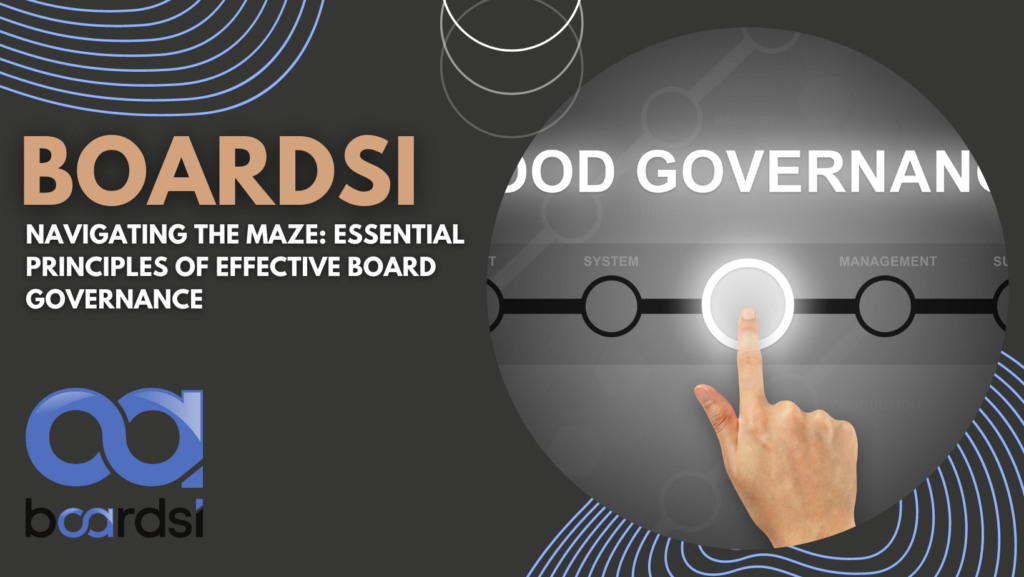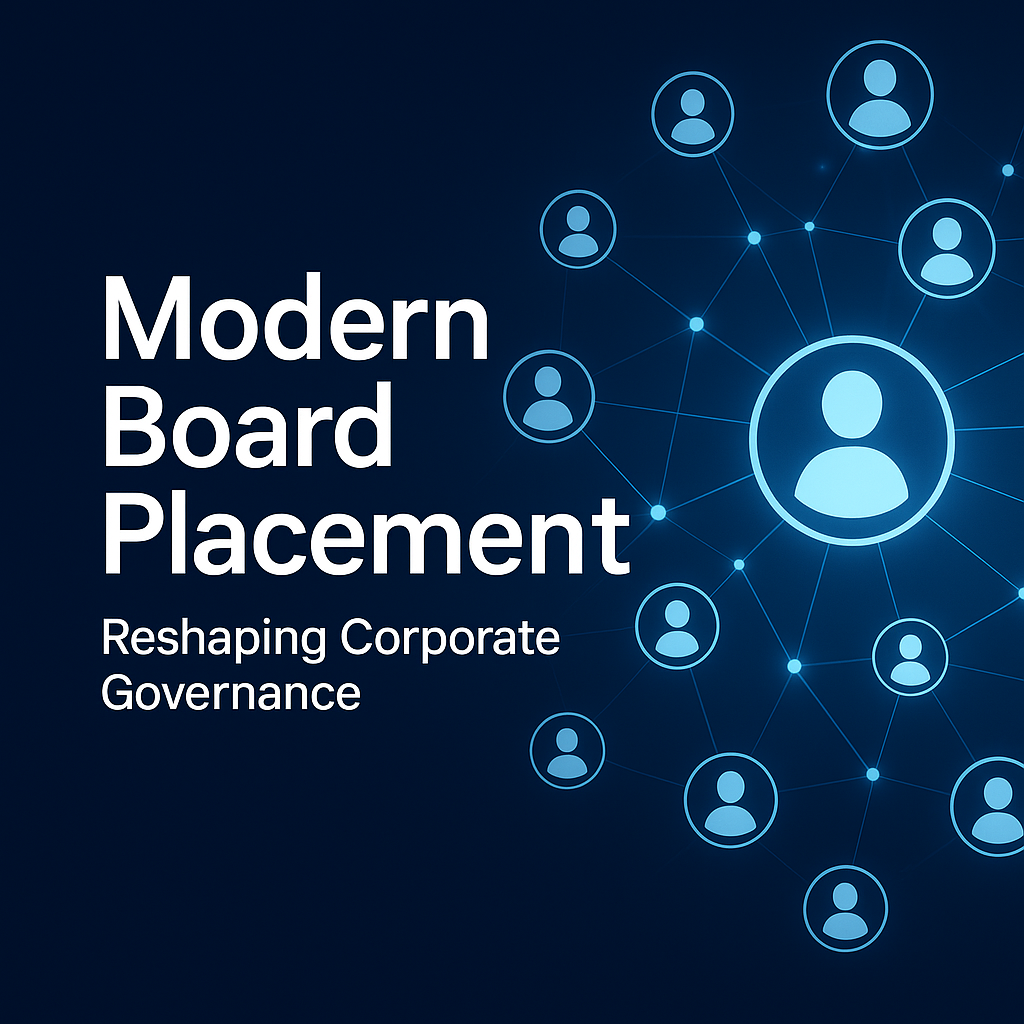In today’s dynamic business environment, strong board governance is no longer an option – it’s a necessity. Effective board governance ensures transparency, accountability, and responsible decision-making, ultimately driving long-term organizational success. This article explores core principles of effective board governance, common challenges boards face, and how Boardsi can be your partner in navigating the complexities of board governance.
Essential Principles of Effective Board Governance
Strong board governance rests on a foundation of clear principles and best practices. Here are some key aspects to consider:
- Clearly Defined Roles & Responsibilities: Both the board as a whole and individual board members must have a clear understanding of their roles and responsibilities. This includes defining the board’s relationship with management and stakeholders.
- Effective Communication & Transparency: Open and transparent communication between the board, management, and stakeholders is critical for fostering trust and ensuring informed decision-making.
- Risk Management & Oversight: Boards have a duty to identify and oversee the mitigation of potential risks facing the organization. This requires a proactive approach to risk management.
- Compliance & Ethics: Boards are responsible for ensuring the organization adheres to all relevant laws, regulations, and ethical standards.
- Diversity & Inclusion: Diverse perspectives within the boardroom lead to more informed decision-making. Boards should strive for diversity in terms of gender, race, background, and experience.
- Board Evaluation & Development: Regularly assessing board performance and providing development opportunities for board members is essential for continuous improvement.
Common Challenges in Board Governance
Boards face a number of challenges that can hinder their effectiveness. These include:
- Lack of Clear Communication: Silted communication channels can lead to misunderstandings and hinder collaboration.
- Insufficient Independence: Boards may struggle to maintain the necessary independence from management to provide objective oversight.
- Inadequate Expertise: Boards may lack the specific expertise needed to address complex issues facing the organization.
- Lack of Diversity: Homogenous boards miss out on the benefits of diverse perspectives.
- Insufficient Training & Development: Board members may not receive the training and support they need to function effectively.
Boardsi: Your Partner in Effective Board Governance
At Boardsi, we understand the complexities of board governance and the challenges boards face. We offer a comprehensive suite of services to support your board, including:
- Board Governance Assessments: We conduct assessments to identify areas of strength and weakness in your board’s governance practices.
- Board Development Programs: We offer programs to equip board members with the skills and knowledge needed for effective governance.
- Governance Best Practices Guidance: We provide resources and guidance on best practices in corporate governance.
- Executive Search & Recruitment: We assist in identifying and recruiting qualified candidates to fill board positions.
- Facilitation & Communication Support: We help facilitate productive board meetings and foster effective communication.
Building a Strong Governance Foundation
By adhering to core principles, addressing common challenges, and leveraging the expertise of Boardsi, your board can establish a strong foundation for effective governance. This, in turn, ensures a more transparent, accountable, and successful organization.
Ready to elevate your board governance and build a thriving organization? Contact Boardsi today and explore how we can help you achieve your governance goals.









